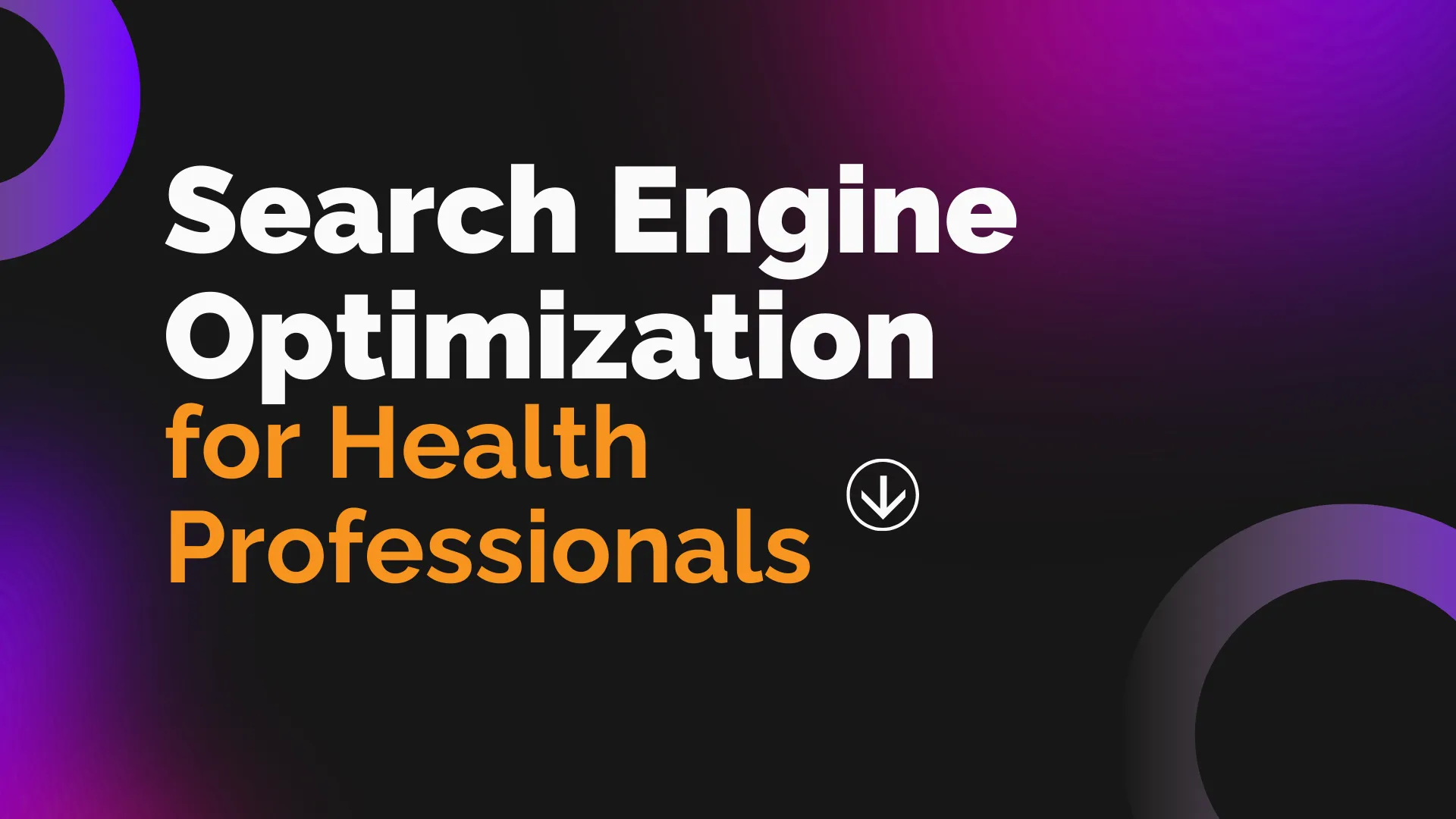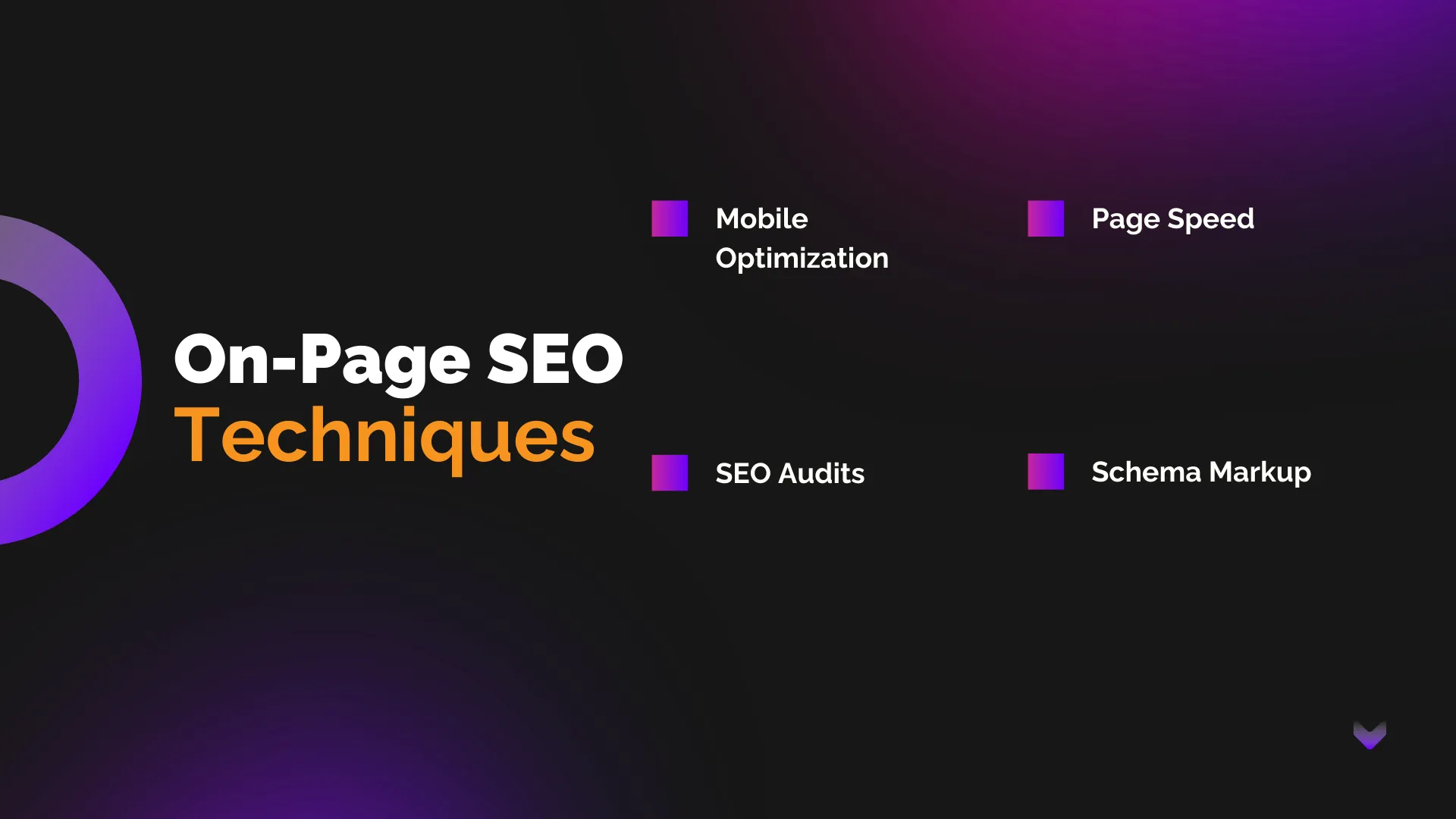SEO for Allied Health Professionals: Boosting Your Online Visibility
AHPs need a strong online presence to interact with patients and build their business in the information age. Improving online exposure is crucial as more people seek healthcare information and services online. Health care SEO tactics make a website more appealing to search engines, increasing traffic and making your services easier to find.
What is SEO and Why is it Useful for Healthcare Providers?
Websites are optimized for search engine results pages (SERPs) through SEO. Keyword research, content production, and technical SEO make a website more accessible to users seeking relevant services or information.
Effective search engine optimization helps allied health providers increase their online presence, making it easier for patients to locate them. Search results can help these professionals reach more people, create trust with potential clients, and boost patient engagement and retention. Patients can also find navigating, learning about services, and scheduling appointments easier on a well-optimized website
On-Page SEO: an Essential Component for a Successful Medical Website
On-page optimization is key to search rankings. Write meta descriptions and headings that naturally include keywords. Published quality content that addresses patient concerns and questions is also crucial. User experience and search engine rankings improve when keywords are effortlessly integrated into compelling content.

Best SEO practices for healthcare websites:
- Make sure your title tags are unique for each page, contain relevant keywords, and are 60 characters or less to display properly in search results.
- Write brief meta descriptions that appropriately explain your page. Use target keywords under 155 characters to boost click-through rates.
- Structure content with header tags (H1, H2, H3, etc.). H1 should include the main term, while H2 and H3 can be subheadings.
- Use keywords strategically, including in the initial paragraph, without crowding them.
- Employ keywords in clear, descriptive URLs. Simple, understandable URLs improve indexing and user experience.
- All site photos should have relevant alt text, especially keywords. This improves search engine context and accessibility.
Essential SEO Techniques for Optimal Technical Performance
Technical search engine optimization emphasizes website performance. Errors indicate a low-quality webpage to the search engine crawler.

Thus, SEO for healthcare services should prioritize these indicators and periodically verify site technicality:
- Mobile optimization matters
Make sure your website is responsive for all devices, especially smartphones. This involves testing load times and small-screen navigation.
- Improve page speed
Use Google PageSpeed Insights to analyze website load times. Improving speed requires image optimization, browser caching, and server response time reduction. Slow-loading websites might turn off patients, therefore site performance is important.
- Healthcare SEO audits for better rankings
Regularly check for broken links, duplicate content, and page speed issues. This can be done with Screaming Frog and Google Search Console.
- Create and submit XML sitemaps to search engines
That helps them comprehend your site structure and find new material faster.
- Implement schema markup to provide search engines more insight into your content and improve results with rich snippets.
-
Utilize HTTPS
Safe your healthcare website with an SSL certificate to boost user trust and search rankings.
- Check and fix crawl faults
Check Search Console for crawl faults and fix them to guarantee search engines can index your material.
- Utilize SEO marketing aid
Collaboration with SEO marketers helps improve optimizing medical websites for search engines. Their experience can help you apply best practices, keep up with search algorithm updates, and improve SEO performance.
Your Clinic Should Be Known — The Importance of Link Building
By getting high-quality backlinks from reliable websites, you show search engines that your material is trustworthy and relevant, which might boost your ranks. Effective links can also bring referral traffic to your site, introducing you to patients who are actively seeking your services. Therefore, this element is essential to SEO strategy.
Health care SEO strategy includes partnering with local businesses, attending community events, and guest posting on health websites. Actively using social media can boost organic link sharing and potential patients engagement.
Local Healthcare SEO Strategy: Key Tactics
Local SEO optimizes a medical practice website for local searches. Claiming and optimizing a Google Business profile might boost local search rankings. Patient reviews greatly affect reputation and search results, so encourage them. Engaging with online evaluations and feedback helps sustain the community’s reputation.
Here are some local SEO strategies for healthcare providers:
- Claim, complete, and enhance your Google My Business profile with your practice name, address, phone number, hours, and services.
- Actively request good Google and other platform evaluations from satisfied patients.
- Use local keywords like your city or healthcare industry in your website content, meta descriptions, and headings to boost local search results.
- If you serve many locations, create website pages for each location with service descriptions and local keywords.
- Use Google Analytics and Search Console to track your website’s local performance data and alter your local SEO approach.
Local search engine optimization tactics can help businesses show up for “near me” searches, increasing foot traffic and client base in their target market.

The Importance of Understanding Your Audience
Targeting your audience is essential for health care SEO. Allied health workers serve patients, caregivers, and healthcare colleagues. Understanding their needs — such as what information they want and how they search — will help you personalize your content and boost site visibility.
Keyword Research for Healthcare Organizations
Keyword research is essential to the healthcare industry since it shows professionals what patients are searching for. Use these SEO tips for health clinics and hospitals to find keywords faster:
- Enter relevant phrases into Google’s search bar for recommendations. These options reflect popular topic-related searches.
- Google’s “Related Searches” area at the bottom of the page offers keyword ideas to inspire content and reveal target audience interests.
- Find user questions on Answer the Public or Quora. This might assist find audience-focused long-tail keywords and content ideas.
- Examine your competitors’ websites. SEMrush and SpyFu show you which keywords they rank for, revealing possible keywords.
- Google Trends can help you find new terms and seasonal keywords related to your practice by showing search query popularity over time.
- Use Keyword Variations: Try different terms and synonyms. Switch between “healthcare organization” and “medical practices” to reach more people.
Keeping up with healthcare SEO trends, algorithm updates, and best practices helps improve your keyword approach over time.
Organic Search Growth for Healthcare Services with Smart Content Marketing
Your content marketing should address patient issues with useful resources. You can become an expert by writing blogs, making videos, and sharing valuable materials. Promote this material on social media and other online platforms to increase its reach and effectiveness.
Expert in your profession, you can publish successful instances, create feature columns outlining significant therapeutic details to patients, or voice your thoughts on an appropriate topic. In this situation, developing your brand is important and greatly raises people’s confidence. As you are aware, we trust someone we have seen previously a little more. SEO for healthcare services can also generate free visitors in the future. Your website must fulfill current needs and be user-friendly to maintain a consistent search position and attract visitors.
Leveraging Monitoring and Analytics for Better Outcomes
Analytics are essential for measuring marketing and patient engagement success. Analytical tools help medical offices examine patient acquisition methods, website user behavior, and SEO techniques.
Data-driven decisions can improve marketing efforts, patient experience, and operational efficiency. Regularly analyzing these metrics reveals trends, allowing proactive adjustments to better serve your patients.
Without thorough monitoring of the promotion outcomes, SEO for healthcare practices and doctors cannot be of high quality. SEO services for Monitoring Analytics:
- Google Analytics
A complete solution for website traffic, user behavior, and conversion tracking. You can learn how patients find and use your website.
- Search Console
Shows your website’s Google rankings. It identifies indexing issues, keyword ranks, and traffic data to optimize search engine optimization.
- SEMrush
Helps practices improve their online marketing by tracking SEO performance, keyword rankings, and competitive analysis.
Common SEO Mistakes to Watch Out For

SEO for healthcare services can be complicated, and many allied health practitioners fall into typical mistakes that hurt their online presence:
- Avoiding content updates
Neglecting website content updates might lower search rankings. An active content strategy is vital since search engines prioritize sites with current and relevant information.
- Keyword stuffing
Overusing keywords to manipulate search engine rankings might backfire. This reduces readability and might lead to search penalties, lowering site visibility.
- Image optimisation
Many healthcare organization ignore image SEO. Lack of alt tags and descriptions prohibits search engines from interpreting image information, losing traffic.
- Ignoring mobile optimisation
With more consumers visiting sites via mobile devices, failing to ensure mobile-friendliness might alienate a large audience and hurt search rankings. Most prospective patients look for medical treatments using their mobile phones. For companies, then, disregarding medical search engine optimization for mobile is a grave error.
- Not tracking analytics
Healthcare providers may miss SEO-boosting information by not monitoring crucial performance data. Analytics tools show what’s working and what needs improvement to boost internet presence.
Conclusion
Overall, search engine optimization is a great tool for allied health professionals looking to improve their online presence. The tactics listed can help professionals gain visibility and engage with their target audience. Try these health care SEO methods immediately and subscribe to our newsletter for healthcare digital marketing tips and insights. At Webugol, we specialize in helping allied health professionals stay ahead of the competition by optimizing their online presence. Success requires constant progress, and with Webugol, you’ll always be one step ahead!


